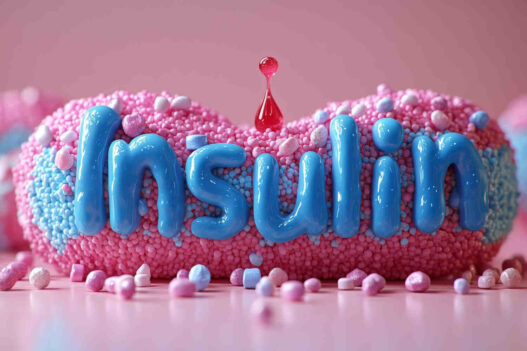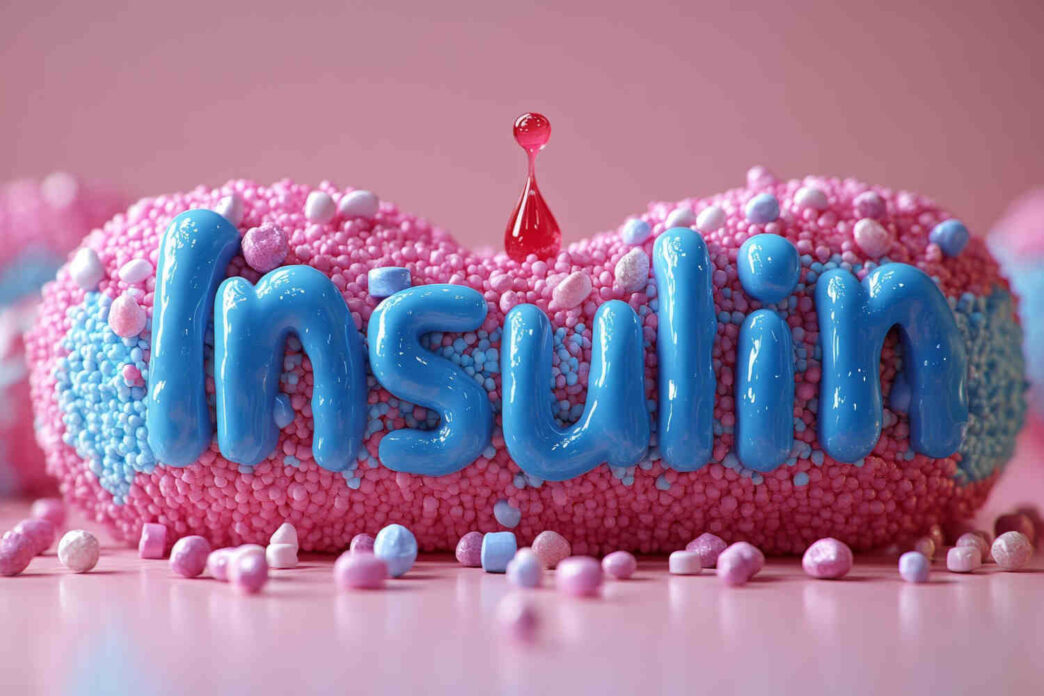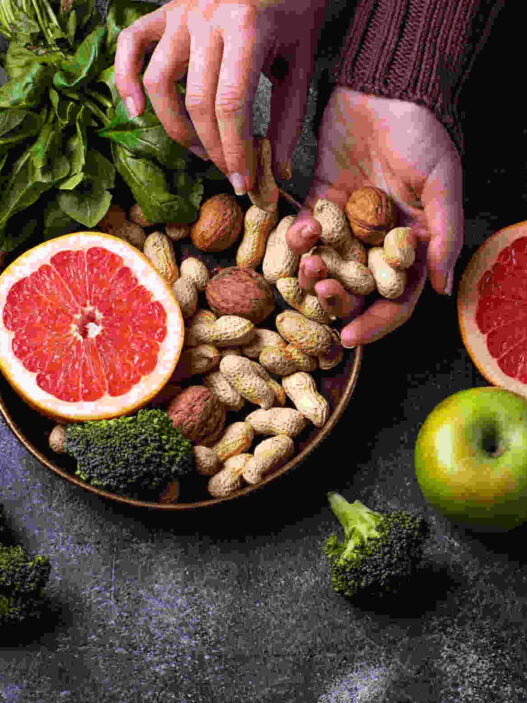Insulin resistance is at the core of all health issues. Know why insulin is the most ignored hormone wrecking our health.
For decades, we’ve been told that weight loss is about calories in vs. calories out. Eating “heart-healthy” whole grains and counting macros is the path to health. That as long as you stay in a calorie deficit, you’ll lose weight and feel great. Yet, here we are—sicker, more overweight, more insulin-resistant, and more hormonally imbalanced than ever.
Insulin: The Overlooked Key to Health
Insulin is the master hormone that controls fat storage, metabolism, and even brain function. But despite its crucial role, the medical industry barely acknowledges it unless you have full-blown diabetes. It’s like waiting for a house to catch fire before admitting that leaving a candle burning on a stack of newspapers might be a bad idea.
Some doctors and experts have been vocal about how insulin resistance is at the core of most modern health issues. Yet, mainstream medicine focuses on symptom management—pushing cholesterol meds, antidepressants, and diabetes drugs instead of addressing what’s driving these conditions in the first place: chronically high insulin levels.
The Food Industry’s Role in This Epidemic
Let’s be real: the food industry doesn’t care about your health. They care about sales. And nothing keeps people consuming more than blood sugar spikes and crashes. They market whole wheat as healthy, slap a “low-fat” label on ultra-processed junk, and keep pushing the idea that all calories are created equal.
But here’s what they don’t tell you: Whole wheat has a glycemic index (GI) higher than table sugar. That means it spikes blood sugar—and insulin—just as fast, if not faster. Yet diabetics are told to eat whole grains. Why? Because the industry thrives when you’re sick, dependent on medication, and constantly craving the next carb hit.
We have to stop feeding the problem. The solution isn’t another medication—it’s removing the foods that are causing insulin spikes in the first place.
The Link Between Insulin and Brain Health
Dr. David Perlmutter, in his book Grain Brain, lays out the devastating effects of high insulin on the brain. Chronic insulin resistance is directly linked to Alzheimer’s (often called type 3 diabetes), brain fog, mood disorders, and cognitive decline. Perlmutter states, “The fate of your brain is not in your genes. It’ s in the food you eat.”
And yet, doctors continue to prescribe medications for depression, ADHD, and memory loss—without even asking what their patients eat. How is this not medical malpractice?
Dr. Georgia Ede, after years of treating patients with pharmaceuticals, came to the same realization: there has to be a better way. Her research highlights how stabilizing blood sugar and insulin through proper nutrition can dramatically improve mental health. She’s seen patients wean off medications, regain cognitive function, and stabilize their mood—all through diet.
The Epidemic of Hormonal Imbalance
Insulin resistance isn’t just about diabetes. We’re now seeing declining testosterone levels, estrogen dominance, and thyroid dysfunction in people in their late 30s—conditions that used to be seen in much older adults. Low testosterone, in particular, is skyrocketing, affecting energy, mood, muscle mass, and even fertility.
Why? Because constant insulin spikes disrupt hormone production. The body can’t regulate testosterone properly when it’s in a constant state of metabolic chaos. And yet, most people don’t even realize this is happening because they’ve been conditioned to focus on calories, not the hormonal response to food. And I am not saying that is the only reason but is the great contribution.
The Vegan Trend: Another Misguided Health Fad
Veganism has been aggressively marketed as the healthiest and most ethical way to eat. But what people aren’t told is how nutritionally deficient a plant-based diet can be when not properly guided.
Meat provides essential nutrients like B12, heme iron, and bioavailable protein—nutrients that are almost impossible to get from plants alone. We’re now seeing an alarming increase in anemia, muscle loss, and hormonal imbalances in those following plant-based diets.
Long-term veganism without proper planning can lead to severe deficiencies, affecting not just physical health but also mental well-being. Low B12 levels alone are linked to depression, fatigue, and neurological issues.
The irony? Many vegans turn to processed plant-based foods that are loaded with seed oils, additives, and synthetic vitamins—exactly the kind of ultra-processed junk that’s ruining our health in the first place.
Depression and Lack of Energy: The Food Connection
Our diet today is setting us up for failure. We are overfed but undernourished. Chronic blood sugar spikes lead to mood swings, anxiety, and energy crashes. It’s no coincidence that depression rates are climbing alongside our increased consumption of processed foods.
Our brain needs stable blood sugar and essential nutrients to function properly. Dr. Georgia Ede has documented cases of patients recovering from severe depression simply by cutting out inflammatory foods and focusing on nutrient-dense eating. Yet, instead of addressing diet, doctors are quick to hand out antidepressants, leaving people stuck in a cycle of medication dependence.
Breaking Free from the Lie
Fixing insulin resistance isn’t complicated, but it requires unlearning everything the food industry and mainstream health advice have drilled into us. The key isn’t a new medication. It isn’t eating six small meals a day or tracking every macro. It’s:
● Eliminating processed carbs and sugar
● Prioritizing protein and healthy fats
● Avoiding “heart-healthy” whole grains that spike insulin
● Focusing on real, whole foods that keep blood sugar stable
This isn’t just about weight loss—it’s about reclaiming energy, mental clarity, and hormonal balance. And the best part? Once you get off the blood sugar rollercoaster, food freedom becomes effortless.
The truth is, that fixing insulin resistance could solve so many of the health problems we’re seeing today. But as long as the system profits from keeping people sick, the burden falls on us to question, learn, and take control of our own health.
And that starts with understanding that insulin—not calories—is the real key to lasting health.

Azadeh Gharehgozlou holds a B.S. in Food Science from Kansas State University, is a certified holistic health coach through IIN, and a registered sports nutritionist through the International Society of Sports Nutrition. With a background in both science and holistic health, she integrates evidence-based nutrition with a functional approach to support optimal well-being.











